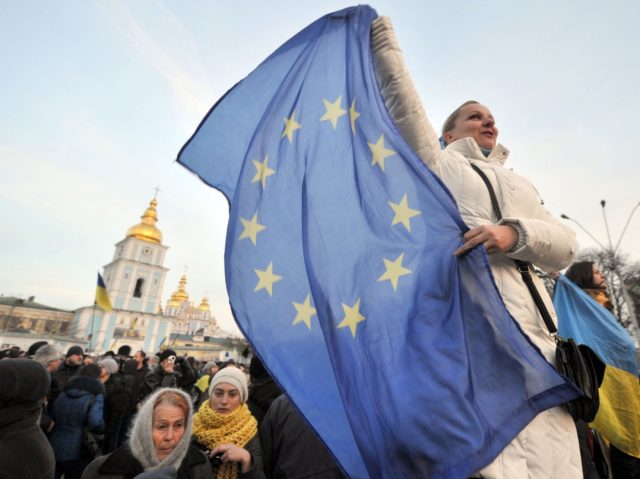President Volodymyr Zelensky is calling for both a ceasefire and for Ukraine’s “immediate” accession to the European Union as his government holds peace talks with a Kremlin delegation in the Russian client state of Belarus.
While the former Soviet Socialist Republic would not qualify for EU membership under normal circumstances, President Zelensky has said that he is “confident” that his country could be admitted to bloc “under a new special procedure”.
“We appeal to the European Union for Ukraine’s immediate accession under a new special procedure,” the comic actor turned wartime leader said at a press conference on Monday.
Zelensky said he was grateful to Ukraine’s “partners” in the European Union for their support so far — initially rather dubious but recently strengthened with an unprecedented plan to finance €500 million (£418,300,000/$561,160,000) in arms shipments — but said that his countrymen’s goal is to “stand alongside all Europeans and, most importantly to stand on their level” as EU citizens.
“I am confident that this is fair. I am confident that we deserve this. I am confident that all this is possible,” he added.
The President of the European Commission, Ursula von der Leyen, had earlier told EU-funded media organisation Euronews on the subject of Ukrainian EU membership: “They belong to us. They are one of us and we want them in” — but preceded this with the caveat that this should happen “over time”.
Ukrainian membership of the EU in the current circumstances would not only present migratory and economic concerns, under its Free Movement migration regime and common budget, but w0uld also bring defence considerations, as its treaties include a NATO-style common defence clause requiring most member-states to assist any “victim of armed aggression on its territory” by “all the means in their power”.
The EU’s efforts to expand into Ukraine in the last decade arguably sowed the seeds of the current conflict, with the so-called Euromaidan movement overthrowing former Ukrainian president Viktor Yanukovych in 2014 after he rejected a proposed EU Association Agreement in favour of a Russian deal, and Russia responding to the coup by annexing the Crimea and backing a pro-Russia separatist uprising in the Donbas.

COMMENTS
Please let us know if you're having issues with commenting.